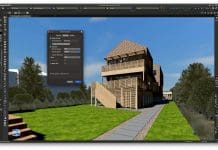Drew Wiggett, Head of Production Information, assesses how important BIM certification for BIM objects is for the construction industry…
There is no doubt that awareness of BIM continues to grow, and both the client and supply sides of the construction industry are taking BIM seriously.
The help and leadership provided by the Government’s BIM Task Group has, without doubt, been an extremely successful approach. Other countries are in awe of how far we’ve come in a relatively short time. The release of freely available, accessible-to-all standards has given the UK a big advantage over its overseas competitors. Standards are vital to all industries. They:
• Reduce time;
• Improve quality;
• Permit compatibility and integration;
• Improve value for money;
• Enable trade.
Their mere existence offers the purchaser a means of accepting or rejecting goods, on the basis of whether or not they comply with the standard.
How can you judge quality without a standard to make assessments against? This is a dilemma facing many when scouring the internet for BIM objects. There are more and more objects to choose from, but knowing which ones you can trust and which ones will have valuable information is not always obvious. Quality is essentially a measure of the extent to which an object fulfils its purpose. On this basis, it must therefore be possible to determine the quality of an object by comparing its inbuilt characteristics against a set of known requirements. If those characteristics meet all or most of the requirements, the object can be deemed ‘high quality’; and when objects meet few of the requirements, then they are labelled ‘low quality’. In essence, the quality of an object depends upon a set of requirements that aligns with a given purpose or need, together with the object’s inherent characteristics, with quality being the measure of how well the characteristics comply with the requirements. NBS has set the standard for construction information for decades, and the need of the majority for both generic and manufacturers’ BIM objects led to the creation of the NBS BIM Object Standard.
Published in 2014, the NBS BIM Object Standard defines clear requirements against which all BIM objects can be assessed. The first of its kind globally, the standard defines what constitutes a quality BIM object, and provides the foundations for a consistent approach that can be adopted by designers, manufacturers and all BIM content developers alike. It is a standard that sets out essential requirements for BIM objects for use with Level 2 BIM. Not only is it essential reading for designers and manufacturers, but clients and project managers procuring buildings and digital assets can easily reference this standard, giving assurance that objects purchased are useful. Developed in-house with feedback from industry and supported by all of the major BIM platforms, the standard has been extremely well received. With over 6,000 downloads of the NBS BIM Object Standard since launch, it has become more popular than we had imagined, and a day rarely goes by without someone letting us know that they’re using it. The NBS National BIM Survey results show us the impact that the standard has had on the industry to date, with 18% using it in their business within a matter of months of its launch.
The NBS BIM Object Standard is a digital document available to view and download from the NBS National BIM Library. Also available to view is comprehensive guidance associated with each clause of the standard.
The availability of the NBS BIM Object Standard is the first step in creating accreditation for BIM objects. The content of the NBS National BIM Library to date has been created by in-house experts. The development of the standard allows manufacturers to create BIM objects to the NBS BIM Object Standard. The NBS can review and certify that these manufacturer created BIM objects meet the standard. These objects can then be made publicly available on the NBS National BIM Library. This certification of BIM objects will grow the NBS National BIM Library and develop it further to be the respected source of BIM objects for the construction industry. ■
Find out more about the NBS BIM Object Standard here http://www.nationalbimlibrary.com/nbs-bimobject-standard .
. . . . . . . . . . . . . . . . . . . . . . . . . . . . . . . . . . . . . . . . . . . . . . .
Drew Wiggett
Head of Production Information
NBS (National Building Specification)
Tel: 0345 456 9594
info@theNBS.com














